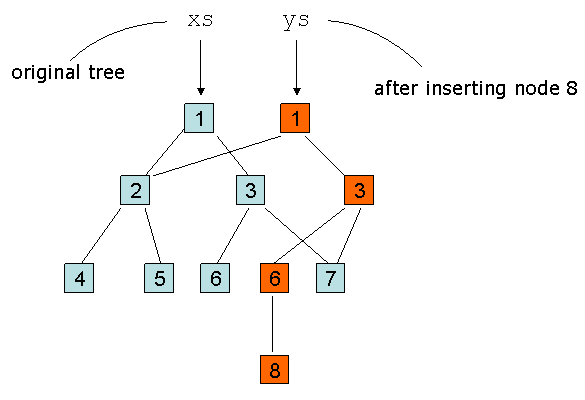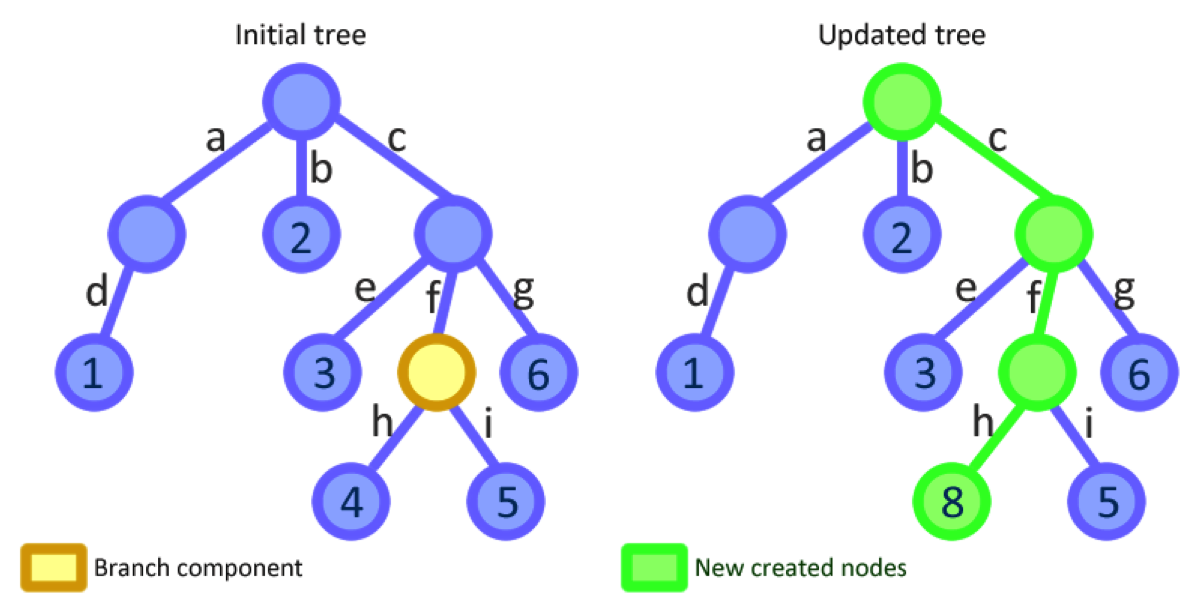Immutable Data
& Why
- Julia Gao @ryoia
Persistent Data Structure
A data structure that always returns a new value when the old one is getting modified.
Hence, the data structures are immutable.
That's it!
//mutable
var a = 10;
a = 10 * 2
//immutable
var a = 10;
var b = a * 2;
//mutable
var a = 10;
a = 10 * 2
//immutable
const a = 10;
const b = a * 2;
Immutable Data

Why Should You Care About Immutability?
var changeable = 1;
function bad (n, fn) {
changeable = changeable * 2;
return fn(changeable, n);
}
bad(1, multiply) // 2
bad(1, multiply) // 4
var changeable = 1;
function bad (n, fn) {
changeable = changeable * 2;
changeable = unknown(changeable);
return fn(changeable, n);
}
bad(1, multiply) //16
bad(1, multiply) // 253

Stateless/Pure Functions
- Same inputs, same output
- Every single time the function is being called
- Regardless of outside changes
Pssh, why do I need to care about that?
Why are stateless functions important
(why-is-this-important-ception)
- Guarantee the result is always what you expected
- No side effects
- Reduce #s of unit tests needed
- Fewer bugs
A data structure that always returns a new value when the old one is getting modified.
Hence, the data structures are immutable.
Isn't that really expensive?
Memory Sharing!


But isn't memory sharing bad??
Only when the data can be mutated
ClojureScript
- A dialect of Lisp
- Immutable Data Structure
- Memory Sharing
(def v [1 2 3]) -> [1 2 3]
(conj v 4) -> [1 2 3 4]
v -> [1 2 3]
PureScript
> let a = toList [1, 2, 3]
> let y = insertAt 1 3 a
> a
Cons (1) (Cons (2) (Cons (3) (Nil)))
> y
Just (Cons (1) (Cons (3) (Cons (2) (Cons (3) (Nil)))))
Those sound awesome,
but I'm still using JavaScript
ImmutableJS
const regularMap = new Map()
regularMap.set(1, “hi”) // Map {1 => "hi"}
regularMap.set(2, “bye”) // Map {1 => "hi", 2 => "bye"}
regularMap.size // 2
RegularJS
ImmutableJS
const immuMap = Immutable.Map({1 : “hi”})
const immuMap2 = immuMap.set({2 : “bye”})
immuMap2.size // 2
immuMap.size // 1
ImmutableJS
const nested = Immutable.fromJS({z:{b:{y:[35,2,42]}}})
-- nested: {'z': {'b': {'y': [35, 2, 42]}}}
nested.set('z', 4)
-- nested: {'z':{'b':{'y':[35,2,42]}}}
const nestedTwo = nested.set('z', 4)
-- nestedTwo: {'z': 4}
Angular Immutable:
https://github.com/mgechev/angular-immutable
Ok...but what if I don't like to import additional libraries
Let & Const


- Block scoped
- No more hoisting
- Const values can't be changed
- (there are exceptions)
function varExample() {
var a = 1
if (a === 1) {
var a = 2
}
console.log('add has a: ' + a)
}
function letExample() {
'use strict'
let b = 1
if (b === 1) {
let b = 2
}
console.log('add2 has b: ' + b)
}
varExample() // 2
letExample() // 1
function constExample() {
const a = 1;
a = 2; // Attempting to override ‘a’ which is a constant
console.log('add has a: ' + a);
}
function add() {
const a; // const ‘a’ is initialized to ‘undefined’
console.log('add has a: ' + a);
}
- Const values can't be changed

const foo = {}
foo.bar = 1
console.log(foo.bar) // 1
Slice, or splice
let xs = ['a', 'b', 'c', 'd', 'e']
xs.splice(0, 2) // ['a', 'b']
xs // ['c', 'd', 'e']
let ys = ['a', 'b', 'c', 'd', 'e']
ys.slice(0, 2) // ['a', 'b']
ys // ['a', 'b', 'c', 'd', 'e']
function increment (person) {
person.age += 1
return person
}
function getOlder(person) {
return Object.assign(
{},
person,
{age: person.age + 1}
)
}
function getOlder({age, ...other}) {
return {age: age + 1, ...other}
}
Random Numbers
function randomPlus (n) {
return n + Math.random() * 100
}

Things that worked on Friday but no longer on Monday
Recursion

Use recursion instead of for/while loops
Iteration
function sum (n) {
let result = 0
for (let i = n; i >= 1; i--) {
result += i
}
return result
}
Recursion
function sum (n) {
if (n === 1) return n
return n + sum(n - 1)
}

Thank you!
@ryoia
Immutable Data & Why
By ryoia
Immutable Data & Why
- 1,275



